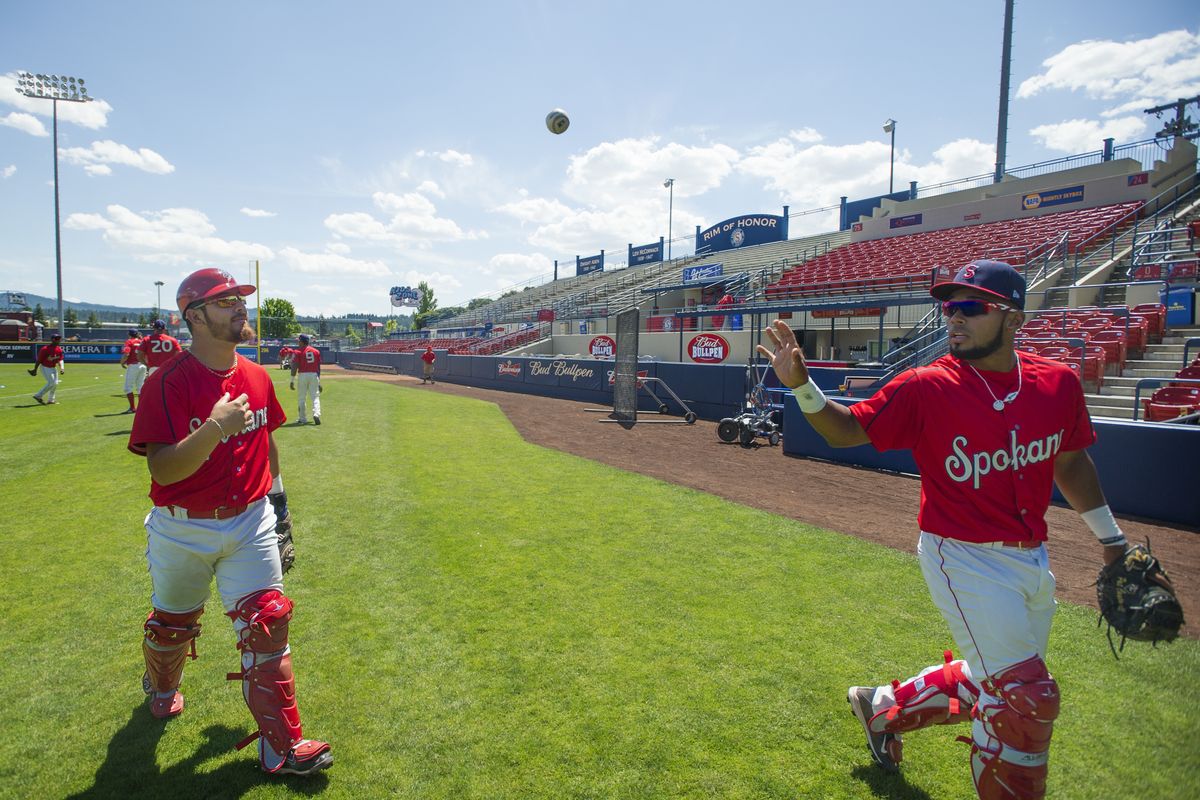Indians’ Sherman Lacrus follows Curacao’s major-league dream

Given the opportunity, Sherman Lacrus Sr. might have paved the way into professional baseball for his sons.
But a generation ago, few baseball people focused on the island nation of Curacao, situated 40 miles north of the Venezuelan coast. So Sherman Lacrus Jr. accepts the opinions of those who saw his dad play.
“At that time, nobody knew about Curacao, so he didn’t play pro ball,” Spokane Indians catcher Lacrus said of his father. “He played at the highest level in Curacao. People tell me, ‘Hey, your dad was a good shortstop.’ He used to tell me that a lot, so when people tell me that too, I know he’s not lying.”
The world discovered Curacao baseball when the team won the Little League World Series at Williamsport, Pennsylvania, in 2004. That team included Texas Rangers infielder Jurickson Profar, who played for Spokane in 2010.
Profar returned to the LLWS the following year. His brother Juremi, an infielder with Spokane last season, played at the LLWS in 2007 and ’08.
Lacrus, 21, made the trip to Williamsport in 2006 and his brother Shair, 18, a pitcher in the Boston Red Sox organization, played in the event three years later.
Curacao, a nation of about 150,000, has produced seven current major leaguers and another seven who played previously.
“Every kid … wants to play in Williamsport so people can watch them playing on TV, ESPN,” Lacrus said. “For me, it starts there. And then, with the major league players we have, everyone wants to be like them.”
Atlanta Braves shortstop Andrelton Simmons assisted Lacrus’ dream while playing at Western Oklahoma State College. Simmons asked coach Kurt Russell to scout Lacrus, who followed his countryman to play for the junior college in Altus, Oklahoma.
“(Russell) liked me and ended up offering me a scholarship,” Lacrus said. “(Simmons’) father was my first coach. We used to practice with each other.”
The Rangers selected Lacrus in the 27th round of the 2013 draft and started him in the Dominican Summer League, where brother Shair now plays. Last season, Lacrus moved on to the Arizona Rookie League and was converted from an outfielder to a catcher.
“I think it was more because of my size (5-foot-11, 180 pounds),” Lacrus said. “I have a catcher’s body, so they told me I had more of a chance to get to the majors as a catcher. So I said, ‘OK, let’s do it.’ I want to do whatever’s possible to get to the majors.”
Lacrus knows he can hit, as he carried a .270 average into the final week of the Northwest League’s first half, but adjusting to the defensive aspect of catching is his main challenge.
“He’d been struggling a little bit,” Indians manager Tim Hulett said before Spokane left on an 11-game road trip. “He’d been really attacking the ball and reaching for it. The (Rangers’) catching coordinator was in town and talked to him about some things. I thought the last couple of games he’s been fantastic at letting the ball come to him. A little more relaxed.
“He’s a really tough kid. The thing I love about him is, it doesn’t matter what the score is, he’s always back there working hard.”
“When I want something, I go for it,” Lacrus said. “I don’t care how hard it is, how tough it is. … That’s how I think. I’m always positive. I can be in slumps, but I’m always thinking positive.”